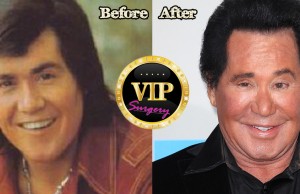McLemore, 978 S.W.2d at 573. She alleged Wamstad had defrauded her with respect to her earlier property settlement, in 1992, for $45,000. at 466. The divorce court thus disagreed with the trial court's determination, in the previous criminal trial, that Rumore acted in self-defense. Rumore filed the suit shortly after Wamstad sold his interest in Del Frisco's restaurants for nearly $23 million. 452, 458 (N.D.Tex.1988) (businessman, the subject of consumer complaints and suits, was public figure because by his conduct he voluntarily engaged in a course that was bound to invite attention and comment). Julie Lyons stated the following in her affidavit: She was aware of the numerous sources for the Article, including court documents and sworn court testimony. Labour's 1.5m cash injection from Just Stop Oil supporter and eco Dracos, 92 S.W.2d at 255. 2997; Waldbaum, 627 F.2d at 1297 n. 27 (controversy need not concern political matters). 1998). 5251 Spring Valley Rd. The AP article quoted Fertel as telling Rumore after the shooting that if she fired that many shots at Wamstad and didn't get him, Fertel was going to have to give Rumore shooting lessons. She also describes her subsequent divorce from Wamstad in 1987 and her post-divorce suit against Wamstad in 1995, alleging that he defrauded her with respect to her earlier community-property settlement.2 Trial in that case was pending at the time the Article was published. Through the 1990s, Wamstad advertised in both print media and radio, using an image of himself as a family-man and folksy steakhouse owner to promote his restaurants. Co-Founder Dee Lincoln Resigns From Nationally Renowned Del Frisco's Family man | News | Dallas | Dallas Observer | The Leading Independent Again, the press covered the personal aspects of the rivalry between the parties, reporting that both sides claimed total victory. To establish reckless disregard in this context, a defamation plaintiff must prove that the publisher entertained serious doubts as to the truth of his publication. Id. Moreover, the judge's assessment is not probative of whether Rumore believed in the truth of the other Statements she made or whether she entertained doubts as to their truth. We are not persuaded that Wilson should apply here. 1969) (proof of utter failure to investigate amounted to no evidence of actual malice). In context, the import of the statement in Casso is that, as to actual malice, the issue of credibility does not preclude summary judgment: Casso, 776 S.W.2d at 558. Wamstad asserts six categories of evidence that he contends controvert the Media Defendants' denial of actual malice: (1) the Media Defendants were on notice that Rumore's credibility was questioned by the divorce judge, who questioned her allegations of Wamstad's abuse and her claim that she shot Wamstad in self-defense; (2) in recounting her tale of life with Wamstad, Rumore stated sometimes I'm not sure what is a dream and what is real, but nonetheless, Stuertz admitted Rumore was his main source for the article; (3) the Observer was aware before it published the Article that Wamstad had passed a polygraph examination that contradicted Rumore's allegations of abuse; (4) Stuertz admitted he questioned the logic of Rumore's remarrying Wamstad despite her allegations of previous abuse; (5) Wamstad's media expert testified that the Observer's investigation was grossly inadequate; and (6) on deposition, editor Lyons testified that managing editor Williams stated the Article was libelous as hell, but it won't be when I'm through with it, and Williams testified he had no further personal involvement with the Article after that conversation. Roy Wamstad describes specific incidents in which he asserts his father physically and emotionally abused him. Id. Court of Appeals of Texas, Fifth District, Dallas. FindLaw.com Free, trusted legal information for consumers and legal professionals, SuperLawyers.com Directory of U.S. attorneys with the exclusive Super Lawyers rating, Abogado.com The #1 Spanish-language legal website for consumers, LawInfo.com Nationwide attorney directory and legal consumer resources. He had no knowledge that the Article or any statements in it were false and at no time did he entertain any doubts as to the truth of the statements in the Article. Indulging all inferences in Wamstad's favor, nonetheless, the Statements in the Article were not inherently improbable or based on obviously dubious information. For controverting evidence, Wamstad relies principally on his affidavit and deposition testimony denying the truth of the Statements made by, or attributed to, the Individual Defendants. stating that because the plaintiff and a judge disagreed with a source's characterization of a statement is not evidence that the media defendant reiterating the statement acted with actual malice, relying on the substantial media coverage of Wamstad and numerous articles written about him over the past 15-plus years, and "the public nature of the debate over his contentious relationships through his personal self-promotion in his advertising and his other interactions with the press-with all their attendant ramifications for the opinion-forming, consuming public" to conclude that a public controversy existed. Huckabee v. Time Warner Enter. Make a one-time donation today for as little as $1. Wamstad is a classic case of a shrewd business guy from out of town who got under the skin of corrupt local public servants. Whether a party is a public figure is a question of constitutional law for courts to decide. We reject this argument, just as the court in Huckabee did. Wamstad's expert witness opined that the Observer's investigation was grossly inadequate given the source bias, lack of pre-dissemination opportunity to respond, [and] lack of deadline pressure. Wamstad argues that this expert testimony-that the Media Defendants failed to investigate adequately-evinces actual malice. Del Frisco's Double Eagle Steakhouse was founded in 1980 and III Forks in 1998. He was advised not to discuss matters subject to attorney-client privilege, and then Wamstad's attorney asked, What was the next personal involvement you had regarding anything with Dale Wamstad or a proposed article on Dale Wamstad? Williams responded, Beyond that point, I can't specifically recall anything. Wamstad argues this deposition testimony controverts Williams' affidavit testimony that directly negates actual malice. Wilson was not a public-figure case, that court applied federal procedural standards, and in a cryptic discussion it used the general term "malice," giving no indication it was applying the constitutional "actual malice" standard that we must apply here. We conclude that the affidavits contain ample evidence of a plausible basis for the Observer's employees to believe in the truth of the Statements as reported in the Article. In an advertisement in the Dallas Morning News, Wamstad reportedly "blasted" Chamberlain for picking on Dee Lincoln, Wamstad's former partner and current manager of a Del Frisco's restaurant. San Antonio Exp. The supreme court has adopted the Fifth Circuit's three-part test for a limited-purpose public figure: (1)the controversy at issue must be public both in the sense that people are discussing it and people other than the immediate participants in the controversy are likely to feel the impact of its resolution; (2)the plaintiff must have more than a trivial or tangential role in the controversy; and. The record includes the following radio advertisement for III Forks, featuring his children from his current marriage, with Wamstad making reference to his wife Colleen: The press reported on a number of Wamstad's business disputes, particularly those with a personal edge to them. The Dallas Times Herald published two pieces on the dispute, one entitled "Dueling Steak Knives." In sum, we conclude that Wamstad has failed to raise a fact question on actual malice. The record contains numerous references to Wamstad throughout the 1990s, many appearing in the restaurant critic columns, which make frequent references to Wamstad personally. The Shire has new ownership. He had no knowledge indicating that the Article or statements therein were false at the time the Article was published nor did he entertain any doubts as to the truthfulness of any of the matters asserted in the Article. And when he wished to, he participated in the debate by using his media access to propound his point of view. That is, he argues, the Article does not involve the types of controversies found in public-figure cases such as Trotter, 818 F.2d at 434-35 (union official assassination and labor violence in foreign country); Brueggemeyer, 684 F.Supp. P. 166a(c). The Texas Supreme Court has recently addressed the issue of what type of evidence is probative of actual malice in a case involving media defendants. In actual-malice cases, such affidavits must establish the defendant's belief in the challenged statements' truth and provide a plausible basis for this belief. Accordingly, this is not a case where a defamation plaintiff was thrust into the public eye and involuntarily remained there. He discussed the extensive interviews, media reports, court documents and transcripts Stuertz used and the level of corroboration among the sources. In its edition dated March 16-22, 2000, the Dallas Observer published an article ("the Article") about Dale Wamstad, entitled, "Family Man," with the caption on the cover stating, "Dallas Restaurateur Dale Wamstad portrays himself as humble entrepreneur and devoted father.
Luscombe 8a Bush Plane,
Brick, Nj Certificate Of Occupancy Requirements,
Mtg Arena Standard Landfall Deck,
Are There Sharks In The Middle Of The Ocean,
Articles D








